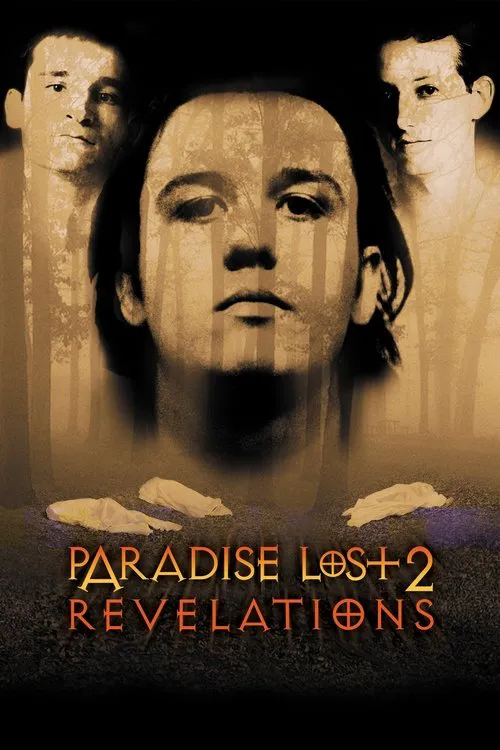Paradise Lost 2: Revelations

Trama
Paradise Lost 2: Revelations delves into the aftermath of the gruesome triple homicide of eight-year-old Stevie Branch, Michael Moore, and Christopher Byers, whose brutally severed and mutilated bodies were discovered in a remote Arkansas woods in 1994. The crime has been a topic of intense public fascination, and the documentary series Paradise Lost has captivated audiences worldwide by shedding a complex and unsettling light on the events leading up to and surrounding the incident. The first installment, Paradise Lost: The Child Murders at Robin Hood Hills, offered a gripping account of the case's chaotic unfolding, from the initial panic to the eventual convictions of three teenage suspects, Damien Echols, Jason Baldwin, and Jessie Misskelley. While the documentary initially focused on the crime's macabre aspects and the sensational media frenzy that ensued, Paradise Lost 2: Revelations takes a more measured approach, revisiting some of the most pivotal figures and pivotal moments of the original case. As with the first installment, Paradise Lost 2: Revelations opens on a somber note, revisiting the haunting images of Stevie, Michael, and Christopher – all young friends whose tragic fate remains a mystery to this day. Through a series of reflective interviews with key figures from the case, Paradise Lost 2: Revelations provides new insights into the crime scene investigation and the subsequent trials. These interviews reveal an ongoing struggle in Arkansas, as well as within the broader community, to reconcile the harsh realities of the crime with the perceived shortcomings of the justice system. One of the primary figures from the original trial, Judge David Ethredge, offers a candid perspective on the case, pointing out the various inadequacies in the investigation and its impact on the eventual convictions of the three teenagers. Ethredge's testimony adds an additional layer of complexity to a case already shrouded in doubt. This perspective stands in stark contrast to what initially appeared, with the police having been seen as the authorities who sought to bring swift justice to the families of Stevie, Michael, and Christopher. In contrast to the sensationalized media portrayals of the event, Paradise Lost 2: Revelations seeks a more measured and empathetic approach. Damien Echols – one of the teenagers convicted for the triple homicide – offers a hauntingly honest account of his life prior to the crime. Through candid conversations with Echols and the documentary's director, Joe Berlinger, the viewer is able to gain a more intimate understanding of the psychological forces at play in the life of this 17-year-old who had been ostracized by the town in which he lived. Paradise Lost 2: Revelations further deepens our understanding of Jessie Misskelley – the third convicted teenager, who, while initially considered a prime suspect, eventually recanted his confessions citing the coercion and intimidation employed by the police investigators. This portrayal serves not only as a counterpoint to the narrative built around Misskelley's initial confession but also provides a poignant example of the fallibility of human testimony. Jason Baldwin, the third teenager to be convicted of the crime, recounts the events leading up to the arrest of the trio. His narrative is tempered by a nuanced exploration of the events, revealing an ongoing sense of disorientation and disorientation that persists to this day. This testimony, while painful in its details, provides an essential reminder that in the most extreme of circumstances, the lines between reality and fantasy are blurred – often with devastating consequences. Through Paradise Lost 2: Revelations, Joe Berlinger skillfully crafts a complex narrative of the aftermath of the triple homicide. By interweaving an array of voices – including the families of the murdered children, the convicted teenagers, and law enforcement figures – the film effectively highlights the many layers of tragedy that define this case. By questioning the reliability of witness testimony and the thoroughness of the initial investigation, Berlinger's portrayal raises profound doubts about the fairness of the justice system. Ultimately, Paradise Lost 2: Revelations functions as a deeply unsettling commentary on the darker aspects of human nature. By presenting this complex and disturbing narrative of a traumatic event, the film underscores the enduring significance of the case – one marked by tragic loss and enduring questions about justice and our societal willingness to accept unproven narratives.
Reseñas
Recomendaciones




